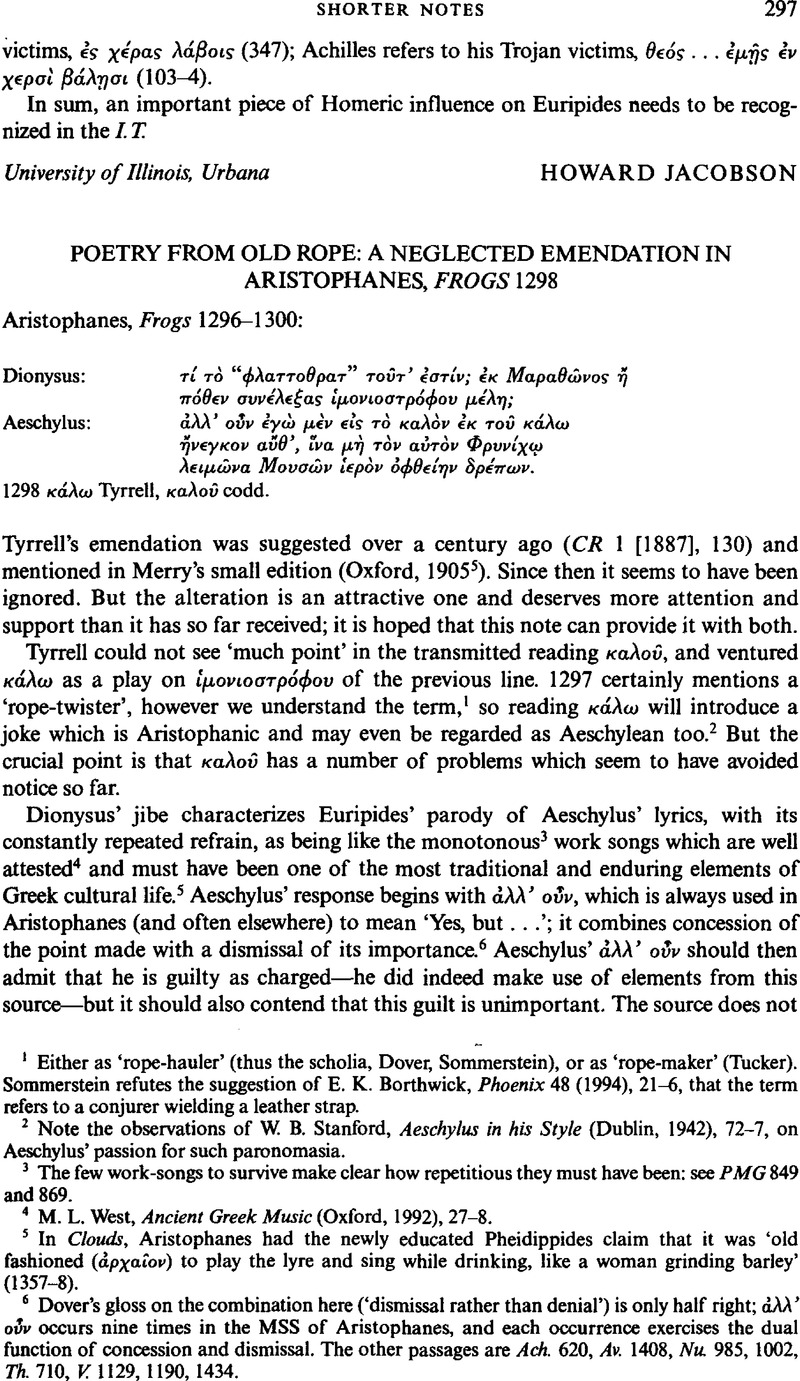No CrossRef data available.
Published online by Cambridge University Press: 11 February 2009

1 Either as ‘rope-hauler’ (thus the scholia, Dover, Sommerstein), or as ‘rope-maker’ (Tucker). Sommerstein refutes the suggestion of Borthwick, E. K., Phoenix 48 (1994), 21–6CrossRefGoogle Scholar, that the term refers to a conjurer wielding a leather strap.
2 Note the observations of Stanford, W B., Aeschylus in his Style (Dublin, 1942), 72–7Google Scholar, on Aeschylus’ passion for such paronomasia.
3 The few work-songs to survive make clear how repetitious they must have been: see PMG 849 and 869.
4 West, M. L., Ancient Greek Music (Oxford, 1992), 27–8.Google Scholar
5 In Clouds, Aristophanes had the newly educated Pheidippides claim that it was ‘old fashioned (ἀρχαῖον) to play the lyre and sing while drinking, like a woman grinding barley’ (1357–8).
6 Dover's gloss on the combination here (‘dismissal rather than denial’) is only half right; ἀλλ᾽οὖν occurs nine times in the MSS of Aristophanes, and each occurrence exercises the dual function of concession and dismissal. The other passages are Ach. 620, Av. 1408, Nu. 985, 1002, Th. 710, V. 1129, 1190, 1434.
7 The Suda (ι 357) glosses ίμονιοστρόΦος with εΰτελής. The view that ex TOU KOXOV refers to the ὲκ τοῦ καλοῦ of 1282 occurs already in the scholia and has modern supporters, but it does not solve the problem: κιθαρῳδικοί introduces a sentence addressed to Dionysus (note ἐγώμέν … οΰτος δ΄) can only be a response to his words, not those of Euripides, so its concessive force remains unexplained.
8 Wasps 220, Birds 748–51.
9 We may prefer an explanation based on simple assimiliation of endings (at Frogs 91 Έὐριπίδου πλεώ ᾔ σταδίῳ has produced the nonsensical variant σταδίου) or on the original form of Aristophanes’ script, for he may have written both κάλοΰ and καλοΰ as ΚΑΛΟ for relevant pre-Eudidean material, see L. Threatte, The Grammar of Attic Inscriptions 1 (Berlin and New York, 1980), 33–4 (Ο for Ω) and 238–41 (Ο for the ‘spurious diphthong’ΟΥ).